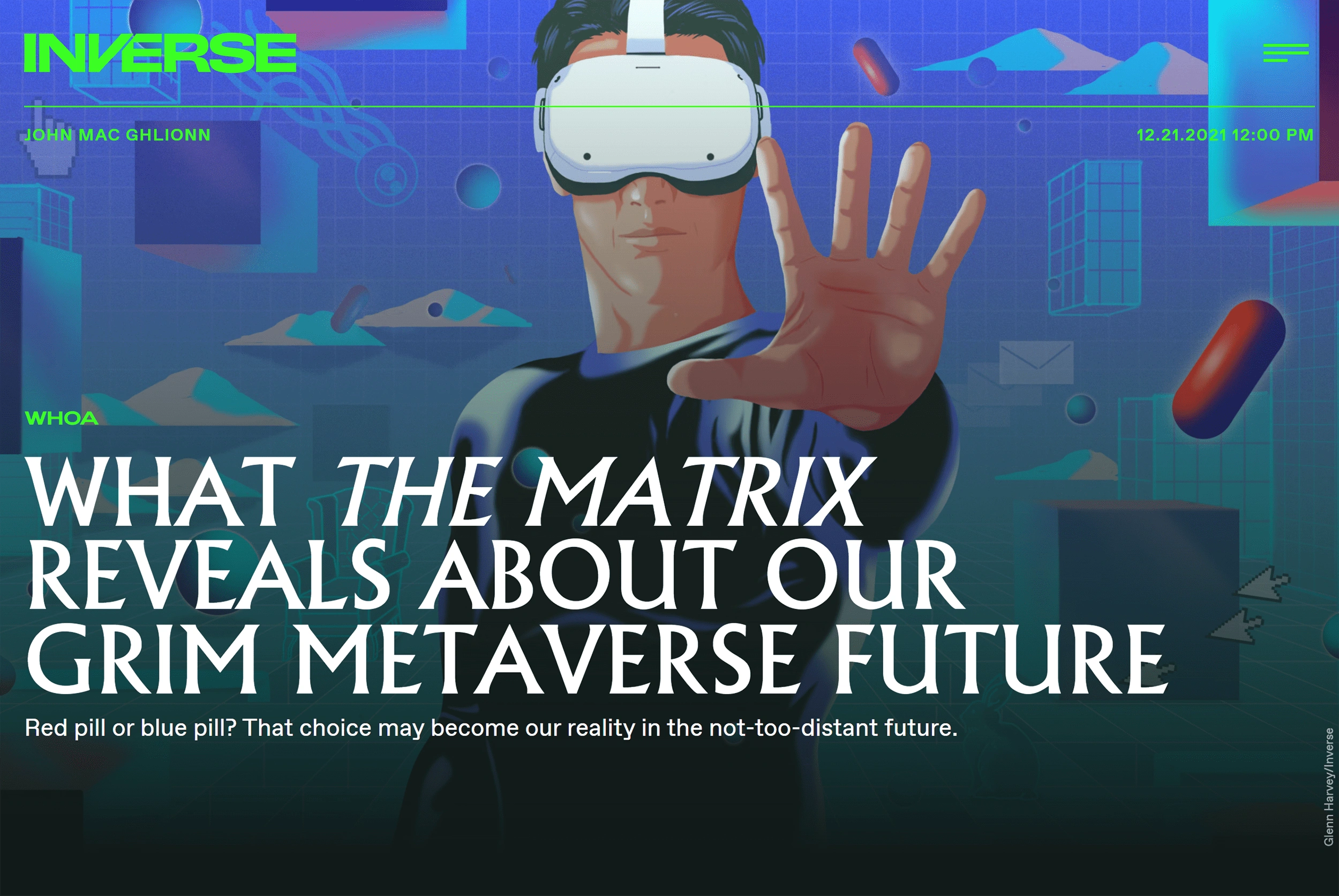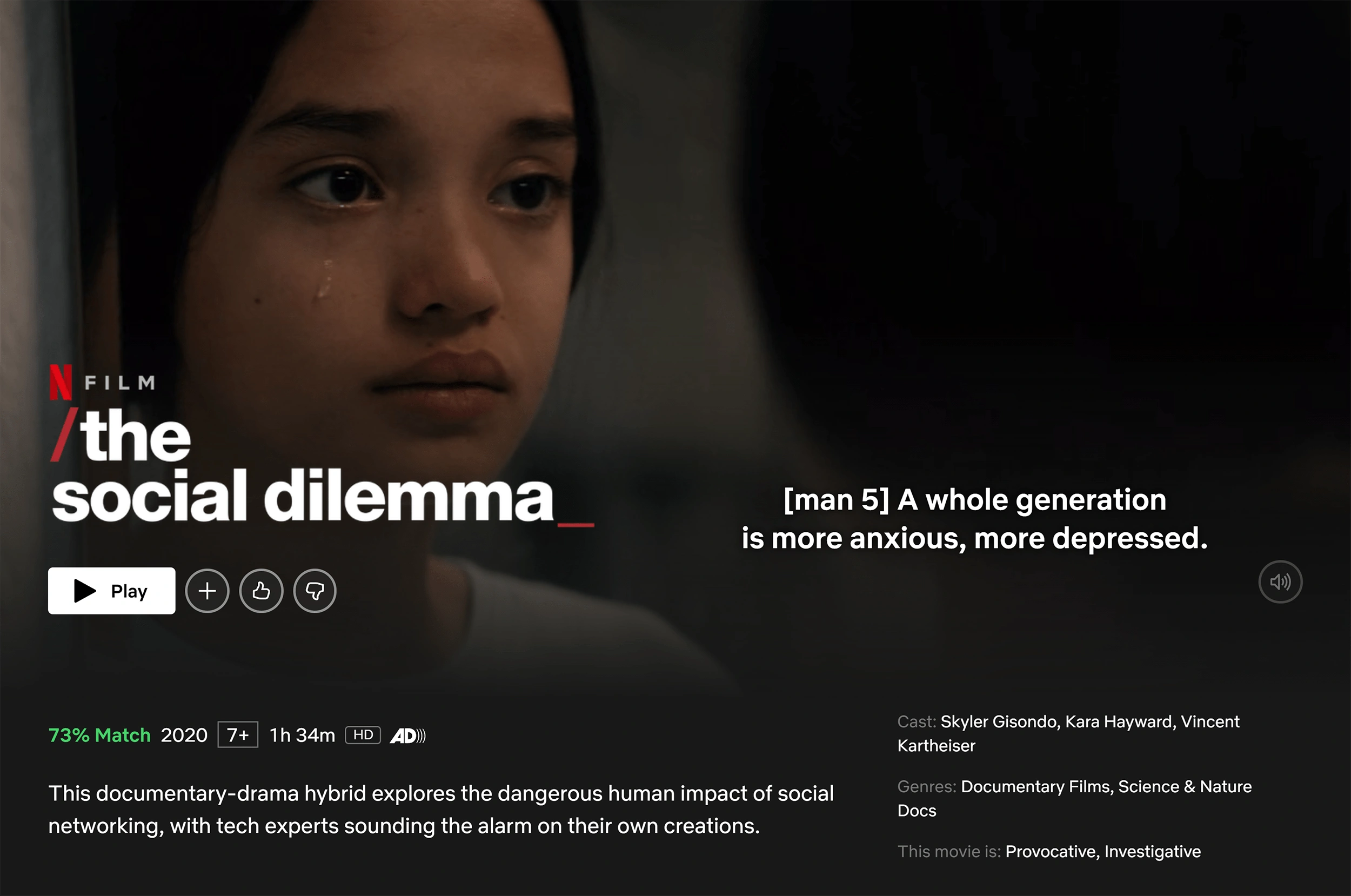In this chapter, we’ll discuss the headwinds that could hold the metaverse industry back.
User Experience Over Everything
A tech company’s ability to capture and hold someone’s attention is critical to achieving mainstream adoption.
Executives are well aware of this already.
In a 2017 interview, the CEO of Netflix famously said they’re not just competing against other streaming services, but against sleep itself.
He meant that many of today’s top companies are fighting to gain as many seconds of a consumer’s attention as they possibly can (including the time we should be spending sleeping).
Because of that, the days of “Build it and they will come” are long gone.
Instead, success in today’s hyper-distracted world requires providing an experience that’s superior to the ten million other things consumers could spend their time on (from video games to swiping on Tinder, etc.).
The Technology Just Isn’t Up to Par
Unfortunately for metaverse proponents, the technology required to provide a truly impressive user experience is years (if not decades) away.
If you’re over age 30, however, you know technologists said the same thing about virtual reality, robots, and flying cars.
Predictions that - decades later - have yet to materialize.
Because of that, one of the largest obstacles facing the metaverse is the fact that, in 2022, the technology just isn’t ready yet.
With that said, the graphics on today’s top video games have become incredibly realistic.

And with companies like Microsoft partnering with top-tier game studios to bring the metaverse into reality, odds are we’ll start to see basic (yet functional) metaverse worlds in the near future.
Zoom Burnout & Consumer Hesitancy
While Zoom was a lifesaver to many businesses during the pandemic, the overreliance on digital meetings quickly devolved into a nationwide phenomenon known as Zoom Fatigue.

On the one hand, there’s a gargantuan difference between staring at your coworker’s faces and playing a top-of-the-line video game. In fact, while most people can’t wait to get off Zoom, the average gamer spends upwards of eight hours per week playing.
On the other hand, there’s a big difference between playing a video game (which has been configured to maximize dopamine dumps) and socializing with strangers in a virtual world.
So while the metaverse may be a cool tool for holding holographic Facetime meetings with family and friends, Zoom Fatigue provides evidence there may be limits to how much time people are willing to spend “socializing” online.
The Dystopian Narrative
While they’re unlikely to prevent the metaverse from being built, a growing number of consumers (and big-name CEOs) see virtual worlds as a serious step towards a dystopian future.
In some cases, critics are quick to call out how spending time in a virtual world isn’t that much different from how the characters in the Matrix movie “plugged into” the Matrix itself.
Admittedly, using a pair of VR goggles and plugging a computer cable into your skull are two very different things. However, with Elon Musk investing serious resources into creating the world’s first computer chip brain implant (known as Neuralink), the possibility of plugging into the metaverse via direct brain connection does exist (albeit far in the future).
The Effect of Social Media On Children’s Mental Health
Making a slightly more practical argument are children’s health experts who’ve observed social media’s negative effect on both kids’ and teenagers’ mental health.
To demonstrate just how dangerous some believe social media has become, a recent Netflix documentary highlighted how multiple executives (including ones responsible for building platforms like Twitter, Instagram and Facebook) refuse to let their children use social media.
Considering the metaverse will be dramatically more immersive than a smartphone app, an increasing number of experts are raising the alarm regarding the negative impact metaverse usage could have on children’s and teens’ mental health.
Admittedly, it’s unlikely mental health experts will have much say in the development of the metaverse. The government, however, will.
Antitrust Laws
In what may be the largest threat of all, government regulators may be hesitant to give tech companies control over what is essentially a virtual society.
In fact, even without the metaverse, governments across the globe have charged companies like Facebook, Google and Microsoft with various antitrust cases related to what regulators see as monopolistic business practices.
Further, while tech giants like Amazon and Apple are in the business of selling physical goods, one could argue Meta and Microsoft are the only companies with the resources needed to build the type of metaverse that eventually goes mainstream.
Regardless of their abilities, however, government regulators may attempt to squash tech company’s plans before they even get off the ground.




